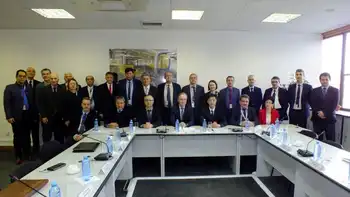Ex-Exec: Enron Broadband Massaged Results
HOUSTON, TEXAS - Enron's broadband subsidiary twice resorted to accounting gymnastics to hide its disappointing performance, the unit's former chief executive said in court recently.
Kenneth Rice, testifying in the conspiracy and fraud trial of five former Enron Broadband Services (EBS) colleagues, said finance executive Kevin Howard twice proposed complex partnership arrangements to monetize a joint venture involving a nascent video-on-demand service.
The transactions, dubbed Braveheart at Enron, were the only reason Enron Broadband Services hit its earnings targets in the last quarter of 2000 and the first quarter of 2001, Rice said.
"I called it one more hit of crack cocaine," Rice said, recalling a conversation with former Enron Broadband Services Chief Operating Officer Kevin Hannon in 2001. "I said, 'Hopefully, it will be the last."
Rice and Hannon have pleaded guilty to fraud and agreed to cooperate with the government.
Former Broadband finance executives Howard and Michael Krautz, along with former Broadband technology executives Joe Hirko, Rex Shelby and Scott Yeager, have pleaded not guilty to all charges. Hirko, Shelby and Yeager also are charged with money laundering and insider trading Rice said he knew Enron Broadband Services was far from delivering the high-speed Internet network it began touting in 1999, but lied repeatedly to investors and analysts by saying Enron already possessed critical technologies Rather, Rice recounted for prosecutor Ben Campbell how Enron Broadband Services struggled to meet its internal earnings targets as 2000 wore on because revenues were not keeping pace with spiraling costs.
The company looked good in the second quarter because of a sale of unused fiber-optic capacity in a transaction called Backbone. The buyer was called LJM, an off-the-books partnership formed by then-Enron Corp. Chief Financial Officer Andrew Fastow, who will serve a 10-year prison sentence after pleading guilty to conspiracy in another deal with prosecutors.
In the third quarter, a fortuitous investment in a technology company that resulted in more than $150 million worth of profit saved the books, Rice said.
Then came the Braveheart deals, which prosecutors say were illegal because Enron retained too much control over what were supposed to be joint partnerships.
Immense pressure within Enron for units to meet earnings targets caused Enron Broadband Services to resort to desperate measures, Rice said.
"Enron (Corp.) reported steadily growing earnings for years," Rice said. "Part of the way we marketed our shares was to make our earnings reliable."
Related News

European Power Hits Records as Plants Start to Buckle in Heat
BERLIN - Benchmark power prices in Europe hit fresh records Friday as utilities are increasingly reducing electricity output in western Europe because of the hot weather.
Next-year contracts in Germany and France, Europe’s biggest economies rose to new highs after Switzerland’s Axpo Holding AG announced curbs at one of its nuclear plants. Electricite de France SA is also reducing nuclear output because of cooling water restrictions, while Uniper SE in Germany is struggling to get enough coal up the river Rhine.
Europe is suffering its worst energy crunch in decades as gas cuts made by Russia in retaliation for sanctions drive a…




